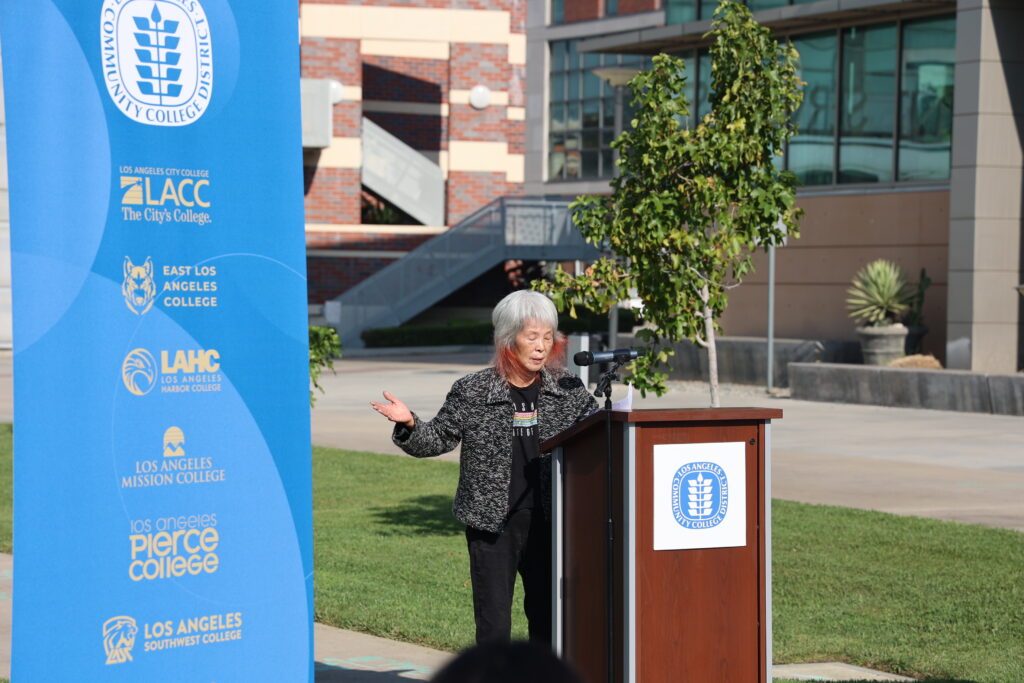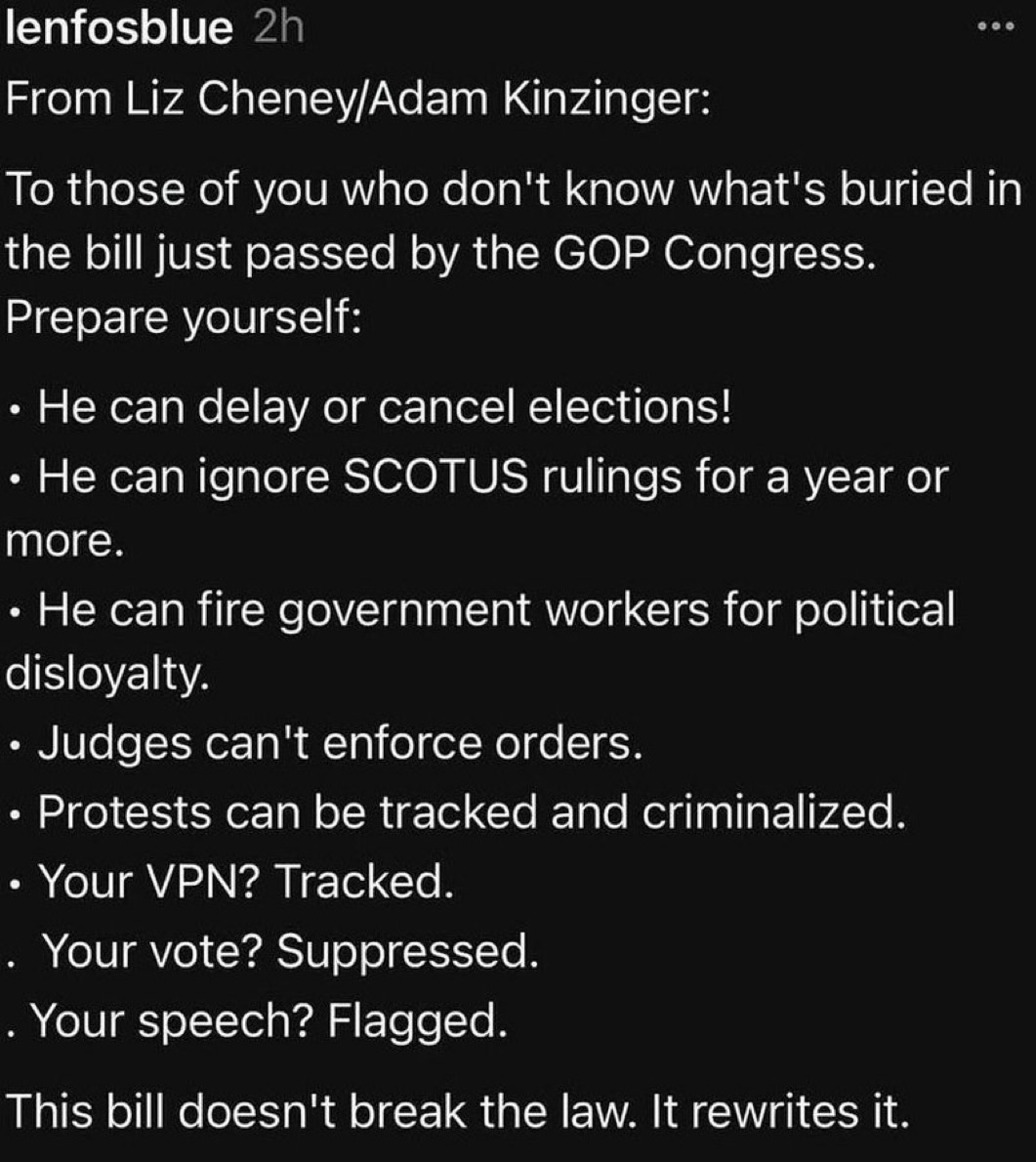Before he was elected President, John F. Kennedy published a book titled “A Nation of Immigrants.” He celebrated the fact that his family was descended from Irish immigrants, and almost every one else (excluding native Americans) was descended from immigrants. At the time, our immigrant heritage was widely acknowledged. Most celebrated their heritage, others embraced America because it rescued them from tyrannies.
Today, thanks to Donald Trump, we live in an era where immigrants are treated as invaders and enemies. He wants to deport millions of them and has even hinted that he has the power to expel American citizens, even to strip them of their citizenship.
Heather Cox Richardson points out that the American people do not share his visceral hatred for immigrants.
Trump appointees insist they have a “mandate” to drive undocumented immigrants out of the U.S. and prevent new immigrants from coming in, and are launching a massive increase in Immigration and Customs Enforcement officers and detention facilities to do so. But a poll released Friday shows that only 35% of American adults approve of Trump’s handling of immigration, while 62% disapprove.
The poll shows a record 79% of adults saying immigration is good for the country, with only 17% seeing it as bad. Only 30% of American adults say immigration should be reduced.
The poll shows that 85% of American adults want laws to allow “immigrants, who were brought to the U.S. illegally as children, the chance to become U.S. citizens if they meet certain requirements over a period of time.” Seventy-eight percent of American adults want the law to allow “immigrants living in the U.S. illegally the chance to become U.S. citizens if they meet certain requirements over a period of time.” Only 38% want the government to deport “all immigrants who are living in the United States illegally back to their home country.”
The poll shows Americans eager to fix a problem that stems from a bipartisan 1965 law that reworked America’s immigration laws.
In 1924, during a period of opposition to immigration that fueled the second rise of the Ku Klux Klan, Congress had passed the nation’s first comprehensive immigration law. That law, known as the Johnson-Reed Act, limited immigration according to quotas assigned to each country. Those quotas were heavily weighted toward western Europe, virtually prohibiting immigration from Asia and Africa and dramatically curtailing it from southern Europe.
The Johnson-Reed Act simply taxed workers coming to the U.S. from Mexico, because from the time the current border was set in 1848 until the 1930s, people moved back and forth across it. Laborers in particular came from Mexico to work for the huge American agribusinesses that dominate the agricultural sector, especially after 1907 when the Japanese workers who had been taking over those jobs were unofficially kept out of the country by the so-called “Gentlemen’s Agreement.” Later, during World War I, the government encouraged immigration to help increase production.
The Depression, when the bottom fell out of the economy, coupled with the Dust Bowl, when the bottom fell out of the western plains, made destitute white Americans turn on Mexican migrants (as well as on their poor white neighbors, as John Steinbeck wrote about in The Grapes of Wrath). The government rounded up Mexicans and shipped them back over the border.
World War II created another shortage of laborers, and to regularize the system of migrant labor, the U.S. government in 1942 started a guest worker policy called the Bracero Program that ultimately brought more than 4 million Mexican workers to the U.S. The program was supposed to guarantee that migrant workers were well treated and adequately paid and housed. But it didn’t work out that way. Employers hired illegal as well as legal workers and treated them poorly. American workers complained about competition.
President Dwight D. Eisenhower returned about a million illegal workers in 1954 under “Operation Wetback,” only to have officials readmit most of them as braceros. Under pressure both from labor and from reformers who recognized that the system was exploitative at the same time that mechanization began replacing workers, President John F. Kennedy initiated the process that ended the Bracero Program in 1964. In 1965 the government tried to replace migrant labor with American high school students, but the “A-TEAM” project—“Athletes in Temporary Employment as Agricultural Manpower”—failed.
The end of the Bracero program coincided with congressional reworking of the 1924 Johnson-Reed Act. In the midst of the Vietnam War and the Civil Rights Movement, Congress wanted to end the racial quota system of immigration and replace it with one that did not so obviously discriminate against Asia and Africa. In 1965, Congress passed the Immigration and Nationality Act of 1965, or the Hart-Celler Act. It opened immigration to all nations, setting a general cap on total immigration levels.
But southern congressmen, appalled at the idea of Black immigration, introduced a provision that privileged family migration, arguing that “family unification” should be the nation’s top priority. They expected that old-stock immigrants from western Europe would use the provision to bring over their relatives, which would keep the effect of the 1924 law without the statute. But their provision had the opposite effect. It was new immigrants who wanted to bring their families, not old ones. So immigration began to skew heavily toward Asia and Latin America.
At the same time, Hart-Celler put a cap on immigrants from Mexico just as the guest worker program ended. The cap was low: 20,000, although 50,000 workers were coming annually at that point, and American agribusiness depended on migrant labor. Workers continued to come as they always had, and to be employed, as always. But now their presence was illegal.
In 1986, Congress tried to fix the problem of border security between the U.S. and Mexico by offering amnesty to 2.3 million Mexicans who were living in the United States and by cracking down on employers who hired undocumented workers. But rather than ending the problem of undocumented workers, the new law exacerbated it by beginning the process of guarding and militarizing the border. Until then, migrants into the United States had been offset by an equal number leaving at the end of the season. Once the border became heavily guarded, Mexican migrants refused to take the chance of leaving.
Since 1986, U.S. politicians have refused to deal with this disconnect, which grew in the 1990s when the North American Free Trade Agreement flooded Mexico with U.S. corn and drove Mexican farmers to find work, largely in the American Southeast. But by 2007, as Mexico’s economy stabilized and after U.S. border enforcement tightened significantly under President Bill Clinton, more Mexican immigrants were leaving the U.S. than coming.
Between 2007 and 2017, the U.S. saw a net loss of about 2 million Mexican immigrants. In 2017 about 5 million undocumented Mexicans lived in the United States; most of them—83%—were long-term residents, here more than ten years. Only 8% had lived in the U.S. for less than five years. Increasingly, undocumented immigrants were people from around the world who overstayed legal visas, making up more than 40% of the country’s undocumented population by 2024.
In 2013 the Senate passed a comprehensive immigration reform measure by a bipartisan vote of 68 to 32. The measure provided a path to citizenship for undocumented immigrants and increased border security. It also proposed to increase visas for immigrant workers. The nonpartisan Congressional Budget Office estimated the measure would reduce the federal deficit by $197 billion over 10 years and $700 billion over 20 years.
The measure had passed the Senate by a wide margin and was popular with the public. It was expected to pass the House. But then–House speaker John Boehner (R-OH) refused to bring the measure up before the chamber, saying it did not have the support of a majority of Republicans.
About that time, undocumented migration across the southern border was changing. By 2014, people were arriving at the U.S. border from El Salvador, Guatemala, and Honduras, where violence that approached warfare—much of it caused by gangs whose members had been socialized into gang culture in the U.S.—and economic stress from that violence created refugees. These migrants were not coming over the border for economic opportunity; they were refugees applying for asylum—a legal process in the United States.
Before the 2014 midterm elections, Republicans highlighted the new migrants at the southern border, although immigration numbers remained relatively stable. They also highlighted the death from the Ebola virus of a Liberian visitor to the U.S. and the infection of two of his nurses. They attacked the Democratic administration of President Barack Obama for downplaying the danger of the disease to the U.S. public and suggested foreigners should be kept out of the U.S. (In fact, the only Americans who contracted the virus in the U.S. were the two nurses who treated the Liberian visitor.)
Despite his own history of using undocumented workers at his properties, Trump followed this practice of using immigration against the Democratic administration for political points, launching his presidential campaign in 2015 by claiming Mexico was sending “people that have lots of problems…. They’re bringing drugs. They’re bringing crime. They’re rapists. And some, I assume, are good people.” He promised mass deportation and to build a wall across the southern border and make Mexico pay for it.
In fact, Trump’s administration deported significantly fewer undocumented immigrants than Obama’s had, at least in part because Immigration and Customs Enforcement under Obama focused on deporting those who had been convicted of crimes, a much easier deportation process than that for immigrants without convictions. But it was still legal to apply for asylum in the U.S., a fact MAGA Republicans opposed as they embraced the “Great Replacement” theory: the idea that immigration destroys a nation’s culture and identity.
The covid pandemic enabled the Trump administration in March 2020 to close the border and turn back asylum seekers under an emergency health authority known as Title 42, which can be invoked to keep out illness. Title 42 overrode the right to request asylum. But it also took away the legal consequences for trying to cross the border illegally, meaning migrants tried repeatedly, driving up the numbers of border encounters between U.S. agents and migrants and increasing the number of successful attempts from about 10,000–15,000 per month to a peak of more than 85,000.
Title 42 was still in effect in January 2021, when President Joe Biden took office. Immediately, Biden sent an immigration bill to Congress to modernize and fund immigration processes, including border enforcement and immigration courts—which had backlogs of more than 1.6 million people whose cases took an average of five years to get decided—and provide a pathway to citizenship for undocumented immigrants.
His request got nowhere as MAGA Republicans demanded the continuation of Title 42 as a
general immigration measure to keep out migrants and accused Biden of wanting “open borders.” But Title 42 is an emergency public health authority, and when the administration declared the covid emergency over in May 2023, the rule no longer applied.
In the meantime, migrants had surged to the border, driven from their home countries or countries to which they had previously moved by the slow economic recoveries of those countries after the worst of the pandemic. The booming U.S. economy pulled them north. To move desperately needed migrants into the U.S. workforce, Biden extended temporary protected status to about 472,000 Venezuelans who were in the U.S. before July 31, 2023. The Biden administration also expanded temporary humanitarian admissions for people from Cuba, Haiti, and Nicaragua.
Then, in October 2023, House speaker Mike Johnson (R-LA) injected the idea of an immigration bill back into the political discussion when he tried to stop the passage of a national security measure that would provide aid to Ukraine. He said the House would not consider the Senate’s measure unless it contained a border security package. Eager to pass a measure to aid Ukraine, the Senate took him at his word, and a bipartisan group of senators spent the next several months hammering out an immigration bill that was similar to Title 42.
The Senate passed the measure with a bipartisan vote, but under pressure from Trump, who wanted to preserve the issue of immigration for his 2024 campaign, Johnson declared it “dead on arrival” when it reached the House in February 2024. “Only a fool, or a Radical Left Democrat, would vote for this horrendous Border Bill,” Trump posted about the measure.
And then Trump hammered hard on the demonization of immigrants. He lied that Aurora, Colorado, was a “war zone” that had been taken over by Venezuelan gangs—Aurora’s Republican mayor and police chief said this wasn’t true—and that Haitian immigrants to Springfield, Ohio, were “eating the dogs. The people that came in, they are eating the cats. They’re eating—they are eating the pets of the people that live there.” A Gallup poll released Friday shows the MAGA attacks on immigration worked: in 2024, 55% of American adults wanted fewer immigrants in the country.
Trump was reelected in part because of his promise to strengthen border security, but now his administration is using attacks on immigrants to impose a police state. As Andrew Perez and Asawin Suebsaeng reported Saturday in Rolling Stone, the administration is fighting to impose its will on wrongly-deported Maryland man Kilmar Abrego Garcia, whom it rendered to a terrorist prison in El Salvador, because if they are forced to back down, “it could set a precedent that opens the floodgates to other legal challenges” to Trump’s other executive power grabs.
“The last thing you want to do here is contribute to a domino effect of decisions where suddenly you’re admitting you’re wrong about everything,” a close Trump advisor told the reporters. “That is why you gotta stand your ground on everything against the left, including on the [Abrego Garcia] situation.”
But it appears the American people simply want to fix a sixty-year-old mistake in the nation’s immigration laws.














